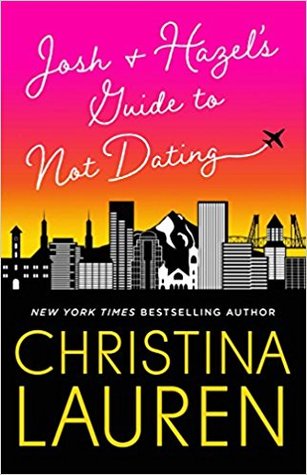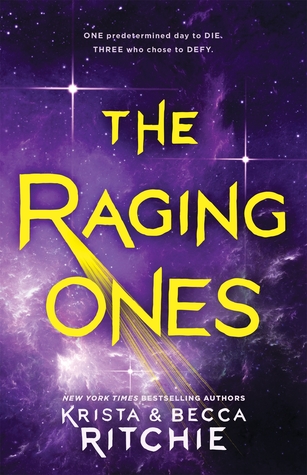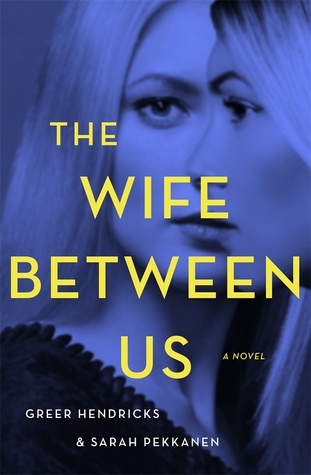
Writing doesn't have to be a solo journey. That's why we reached out to some of today's most dynamic writing duos to give their best advice on collaboration. These duos include longtime colleagues Neil deGrasse Tyson and Avis Lang, sisters Krista and Becca Ritchie, besties-who-share-a-byline Christina Lauren, and former author-editor team turned co-authors Greer Hendricks and Sarah Pekkanen.
Neil deGrasse Tyson and Avis Lang
You may know Neil deGrasse Tyson as one of America’s favorite scientists and the bestselling author of Astrophysics for People in a Hurry. Here Tyson and his editor, Avis Lang, spoke to us over the phone about how they their years-long professional relationship paved the way for Accessory to War.
Goodreads: Tell us about how you collaborated.
Neil deGrasse Tyson: When I first conceived of the book back in 2003, I concluded it would take me about a thousand years to write it. So I said, 'I need a co-author.' Then I said, 'All right, I know Avis Lang.' She’s my long-time editor from a column I wrote for Natural History Magazine.
We developed a working relationship where we knew how to argue points strongly, but arrive at a mutual conclusion. She also knew however stubborn I am upfront, I’m not unconvince-able. So that’s highly valuable in a collaboration, otherwise you wear each other down.
Avis Lang: From where I sit, there was a kind of slow, seamless evolution through Natural History Magazine into Accessory to War. In part because, fairly early during my editorship of his column, [Neil] raised the idea [of writing this book]. He raised his one eyebrow, cocked his head to the side and said, 'You don’t want to an editor your whole life, do you?' So it was an organic outgrowth of what we were already doing.
Goodreads: What was your process? How did you bring your book to life?
NdT: I had most of these chapters spec’d in the my head. [Avis] would come into my office with a tape recorder and I would recite the major points and themes in ways that would lend itself into a narrative. She’s also a brilliant and thorough researcher. So she'd transcribe it and then verify all the details I gave. That became the skeleton of a chapter we would then bounce back and forth to sharpen into content.
AL: Sometimes, when one of us is changing something the other person wrote, we gave a whole, long explanation. I would almost guess that the number of words we expended explaining why we want something a certain way, or why we didn’t buy the other person’s formulation, could almost equal the number of words in this book.
GR: What's the best part about having a writing partner?
NdT: The good thing about a writing partner is that work gets done even when you can’t get work done. [Avis] knows exactly where I’m coming from and where I’m going and what my writing style is. And it’s a blend. If I got something wrong that couldn’t be developed she tells me, 'Neil, this isn’t going to graft well because it’s just boring.' Or, 'It’s interesting, but not relevant.' So she'll just tell it to my face and that’s what you need. You need someone who’s aggressive, but resonant.
AL: There's absolute respect for the other's thought processes and we like many things about the way the other person writes, but we also read very carefully and critically. By the way, I think that there are very different kinds of collaboration.
You can get people like the Harvard political scientists who wrote How Democracies Die. They're two people from the same school, they look like they’re the same age, they both know the subject; they’re in the same ballpark. Neil and I are like two very different entities and between us, we cover a lot of ground. Ultimately, we're a workable team because we’re not the same. We come at all of that stuff from different vantage points.
GR: What would your advice be for aspiring co-authors?
NdT: You’ve got to know the author’s style because otherwise it's going to be a conflict. The authors themselves need to expect a criticism about their writing by someone who has an insight that they do not have. You can’t go in stubbornly and say, 'Oh, you’re just supporting me.' That’s not a collaboration. That’s a guest writer. You want somebody who'll say, 'I think this is a better way to do it.' You can’t have ego.
AL: Whenever you have a disagreement, be very, very precise about formulating your query. Offer a couple alternatives and say, 'Is this what you meant?' And always be polite. You will not get very far collaborating with someone if you say, "That is shit. I’m sorry. We can’t run that." You both have to figure out what's not working and then you can aim your query in a more pointed direction. You don’t just leave it up to the other person to solve it.
Christina Lauren
Representing the world of romance is the author team, Christina Lauren—the shared pen name of Christina Hobbs and Lauren Billings. Together, they’ve written more than 20 novels including the beloved Beautiful Bastard series. Over email, they revealed how they became best friends and business partners.
Goodreads: You’ve been described as longtime writing partners and best friends. How did you two meet?
Christina Lauren: We met online in 2009 when Lauren was putting on a panel at San Diego Comic-Con on fan fiction and invited Christina to be a panelist. We met in person and quickly hit it off, then decided to write a short story together for a contest. We had so much fun that we decided to do it again, this time attempting a book.
GR: What’s the best part about having a writing partner? Were there any moments that surprised you or challenged you along the way?
CL: There are so many amazing things about co-authoring! Not only are there two people to tackle the workload, but it’s really wonderful to have someone to share all the ups and downs along the way.
There is always another person who is just as excited about the shiny new thing, and there is always someone with whom we can talk something out when we get stuck. There’s a magic that happens when we work together on a book: We tell people that being co-authors feels a little like having a superpower.
This may not have been something that surprised us, per se, but very early on we had to think of co-authoring not only as co-writing, but also as being business partners.
It’s been important that we are able to discuss creative ideas, yes, but also contracts, money, deadlines, and writing logistics. Sometimes the conversations have been complicated, but that’s where our efforts to communicate openly and clearly has really helped.
GR: Together, you’ve written over 20 books and counting. That’s quite a feat! What can you tell us about your process?
CL: In hindsight, it sometimes feels like we must have been in a fugue state when we managed to write all of these books in just a handful of years. How did that happen?
As far as process goes, we always outline in person. There’s a chemistry that flows when we sit down and start bouncing ideas off one another. Then, we decide how we’ll divide things up—whether it’s by character, by scene, or by chapter—and then we start drafting.
If a book has alternating points-of-view, it’s an easy split. But we each have different strengths and sometimes one of us will want to write a particular moment. At this point, we know what one or the other would do better. As we finish scenes or chapters we add them to a file so we can read, then we compile and revise. The key to our books feeling like they’ve been written by a single author is the revision process where we go over it again, and again, and again.
GR: What advice do you have for aspiring co-authors?
CL: Rule #1: Make sure you’re compatible. This seems obvious, but it’s very easy to like someone a whole lot, love their writing style, and decide to embark on this creative journey because it sounds like fun.
It is fun, but remember: It’s difficult to collaborate creatively when you have two of the exact same personality types, such as two people who need to be in control, or two people who leave everything to the last minute.
In our case, neurotic and easygoing tend to balance each other very well. So take the time to consider your combined temperaments, your work habits, your strengths and weaknesses before you enter into a creative business partnership.
Rule #2: Make sure you trust each other. Sharing new and rough words can feel very vulnerable, so be sure you trust your co-author to be careful with them—and you. But also: Don’t be delicate. Edits are suggested to make the story better, not because you did something wrong. Everyone’s goal should be to create the best book possible. There is no individual ego in a co-authoring team.
Rule #3: You might not always agree. Co-authoring is a relationship just like any other; you wouldn’t want to be in a relationship where you didn’t feel invested in and safe enough to argue. It’s okay to disagree, but learn where your creative and professional lines are, and draw them thoughtfully and consistently.
Krista Ritchie and Becca Ritchie
YA fans and readers of the Addicted and Like Us series will be familiar with sisters Krista and Becca Ritchie. Through their email correspondence, they let us know that while the both of them grew up writing separately, writing together seemed just like a natural fit.
Goodreads: Not only are you two a writing duo, you’re also a sister-sister duo! Has this always been the dream?
Krista Ritchie and Becca Ritchie: As kids, we grew up writing separately, but we were each other’s biggest fans! Really, we were the only ones reading each other’s stories. Around the end of high school and start of college, we wanted to team up.
We had different styles of writing, but our weakness and strengths paired so perfectly that we quickly found writing together was more enjoyable. We’ve both always loved telling stories, but the dream of telling them together definitely came later on.
GR: What’s the best part about having a writing partner?
KR and BR: Our favorite part of writing together is being able to bounce ideas back and forth. Being fully committed to the characters and world with someone else is such a blessing and keeps our inspiration tanks full!
At the start, it was a huge shock that our styles melded so well. One of us is more focused on description and the other is stronger with dialogue. Seeing that we’re better together than apart was a pleasant surprise!
GR: You’ve both partnered on many series together. Can you describe your process?
KR and BR: We always start working on a project with major brainstorming. We’ll map out all big plot points, but we won’t outline everything. One of the most fun aspects is shocking each other with twists and turns, and in that sense, one of us always becomes a “reader” and is able to say whether the twist falls flat or works really well.
Our writing process is pretty complicated. We don’t divide chapters. Instead, we both touch every page, and we’ll essentially write on top of each other and fill in the story with more detail.
GR: What advice do you have for aspiring co-authors?
KR and BR: Our advice is to be open-minded to your co-author’s creativity and focus on communication. The best ideas are usually the ones found together. Co-writing is one of the most enjoyable experiences, and once you’ve found the writing partner of your dreams, hold on tight! Don’t let go!
Greer Hendricks and Sarah Pekkanen
Ever wonder what it’s like to work with your dopplegänger? That's what happened to mystery duo, Greer Hendricks and Sarah Pekkanen. Their backgrounds were similar to the point of eeriness, but over email they shared how their skills complemented each other enough to bring their debut, The Wife Between Us, to life.
Goodreads: Tell us about your partnership. When did you decide to write a book together?
Sarah Pekkanen: We met in 2008 when Greer was an editor at Simon & Schuster and my agent submitted my debut novel to various publishers. Greer snapped it up and we soon became close friends. Over the years, we learned we have an uncanny number of things in common, including being the exact same age, having backgrounds in psychology and journalism, being terrible cooks, and being close to our brothers (who happen to both be named Robert).
Greer Hendricks: After working together on seven novels as an author-editor team, I left Simon & Schuster. In the back of my mind, I wanted to try to write fiction. I confided in Sarah, who suggested we write a book together. By that point, we knew we shared strikingly similar narrative instincts and approaches to storytelling. When we discovered we were both itching to write a psychological page-turner, it seemed almost predestined. That novel turned into The Wife Between Us, our debut.
GR: What’s the best part about having a writing partner?
GH: There are so many great parts to having a writing partner. One of the best is accountability. We commit to working, and we both know we have to show up. Another bonus is having each other on book tour! We especially love to go running together in new cities.
SP: The main difference from writing alone is that we both articulate our thoughts to one another before we write—whereas for a solitary writer, your thoughts and ideas are internal. As for challenges, our biggest one is always technology!
GR: What can you tell us about your process co-authoring The Wife Between Us? Were there any learnings that you applied to your upcoming second book, An Anonymous Girl?
GH: We had just one rule when we decided to write a book together: If either of us felt the process was not enjoyable and wanted to back out, we would be honest with the other and end the creative partnership. But from day one, we knew we were onto something special.
We always say that we are 'Better Together.' Sarah even got us matching T-shirts with that logo! The real trick was to find a logistical way to collaborate. So, the third partner in our collaboration is Google Docs and Hangouts. These tools let us write our manuscripts in real time while we simultaneously talk.
SP: We also visit each others’ cities to plot every month or so. We camp out in a hotel room for a 36-hour stretch and "Homeland" the walls with giant Post-it notes. When we began to write An Anonymous Girl, we had our process firmly in place. We start our days as soon as our kids get off to school and work through lunch, wrapping up when the kids come home.
Although we do all of our plotting and writing together, we also go back into the manuscript individually (often late at night or early in the morning) to do small edits and tweaks in "suggested" mode for the other to review.
GR: What advice do you have for aspiring co-authors?
SP: Pick the right partner. At this point, we aren’t merely co-authors. We are business partners, advisors, and therapists to one another. All of this is built upon a rock-solid foundation of friendship. So, choosing a co-author who is both temperamentally and creatively in tune with you is critical.
GH: It’s really a marriage, so make sure you have clear communication and respect. When you’re part of a unique team, you need to put the partnership above your ego and even your individual needs at times. But with the right partnership, it makes you the best self you can be.
posted by Marie on October, 23
from Goodreads Blog https://ift.tt/2O1g55m
via IFTTT





No comments:
Post a Comment